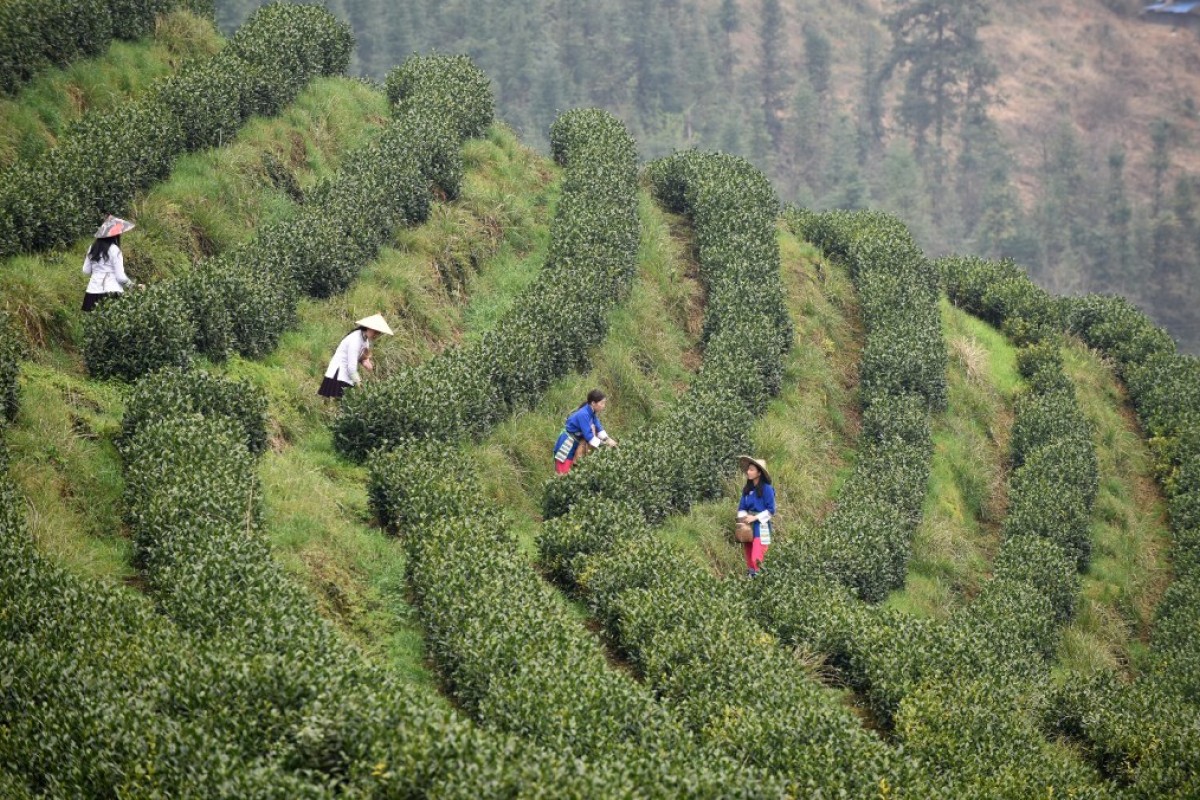
Tutors from Modern Education and Beacon College said the paper was about as difficult as last year, and that several question types had appeared in the past
 The effects of plantation agriculture appeared on the paper this year.
The effects of plantation agriculture appeared on the paper this year.This year’s Geography DSE exam questions were well written and pitched appropriately to distinguish between normal and higher level students, local star tutors told Young Post.
The exam, which 8,992 candidates sat, took place today.
Johnny Yeung, more commonly known as J. Yeung, a tutor at Beacon College, told Young Post that the level of difficulty was quite similar to last year’s paper, but generally harder than years before that.
One example of this was in the frequently tested topic, nutrient cycling. “Nutrient cycling has been a recurring topic and it’s here again this year. However, this year’s question was more difficult, it asked students to compare the effects of two human activities on the cycle [rather than just one],” said Yeung. “This question would definitely have differentiated between students of different abilities.”
Titus Chan, a tutor at Modern Education, added that the question on nutrient cycling in 2017 only asked students about the effects of plantation agriculture. But in this year’s exam, students were asked to compare between shifting cultivation and plantation.
“Also, the examiners start to pick up on students’ past mistakes [and so write questions that challenge them on those topics]. In 2017, many students did poorly on the question regarding plantation. Since they cannot just copy and paste the question again this year, the examiners added a twist,” said Chan.
Jacqueline Guico, a 19-year-old student at Belilios Public School, told Young Post that she felt the exam wasn’t especially surprising, but did feature several tricky questions.
One of these, in Paper Two, was on dynamic earth. Students were asked about the weathering process of a rock on a beach, shown in a photo on the exam paper.
“The rock seems like it’s undergone exfoliation because it looks as if it’s peeling layer by layer, but my friends said it was salt crystallisation because seawater has high salinity,” said Jacqueline. “I’m torn between the two, and I still don’t know the right answer.”
Yeung agreed that a lot of students might have found this section difficult because it required in-depth knowledge of the topic.
“Also, they might not have seen this situation in their textbooks before, that’s why they’re not familiar with it,” said Yeung. He said that he didn’t want to reveal the answer as he was worried that doing so would affect students’ emotions, as DSE exams are still going on.
However, he said if students really wanted to know the solution now, a similar question appeared in 2014, about a rock weathering situation in a coastal area in Ma Shi Chau.
As for the new question type, the fieldwork-based question, neither Jacqueline nor Yeung thought it was too difficult, especially if candidates had done this kind of fieldwork before.
However, Chan said that many textbooks might not go into enough detail about longshore drift, a key concept in the fieldwork-based question.
“If you’ve done the exact same field trip and experiment, you’d probably have no problem,” he said. Yet he still felt students should be extra careful when asked to identify the equipment and explain how they should be used in fieldwork.
He pointed out that in the last part of that question, which asked candidates to suggest a field study topic, students couldn’t simply give a concept, like “deposition”. Rather, the answer has to include some direction for the study, such as “the different deposition conditions in different coastal areas”.
Chan concluded that this year’s data-based questions, especially the last sub-questions, were more advanced and sophisticated, as students were asked to express their own viewpoints, and had to refer to the information given in previous sub-questions.
You might also like
How to deal with exam stress - some top tips
A summer job is far more valuable than sitting around all holiday
